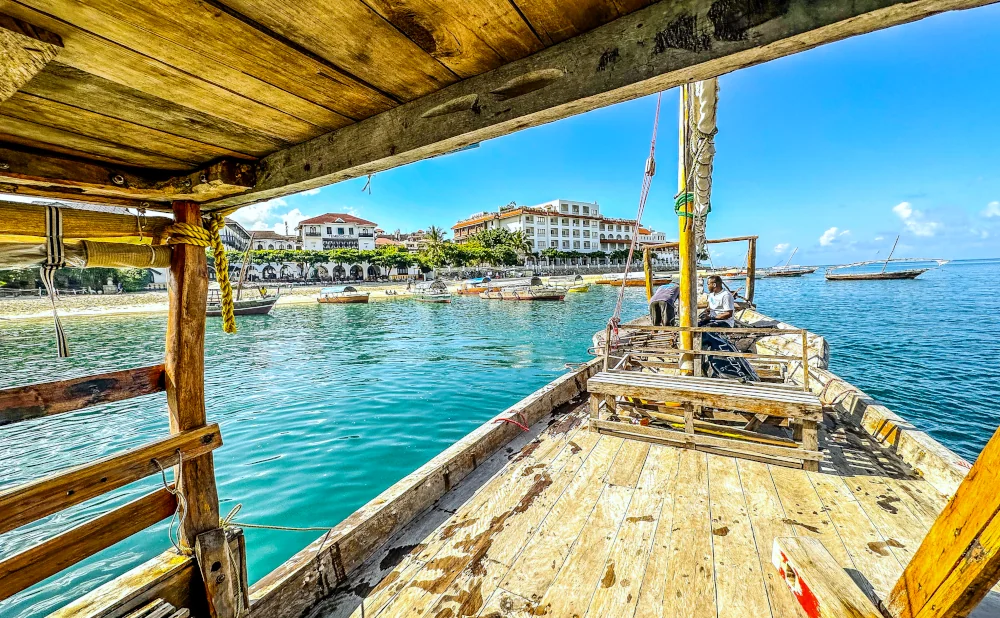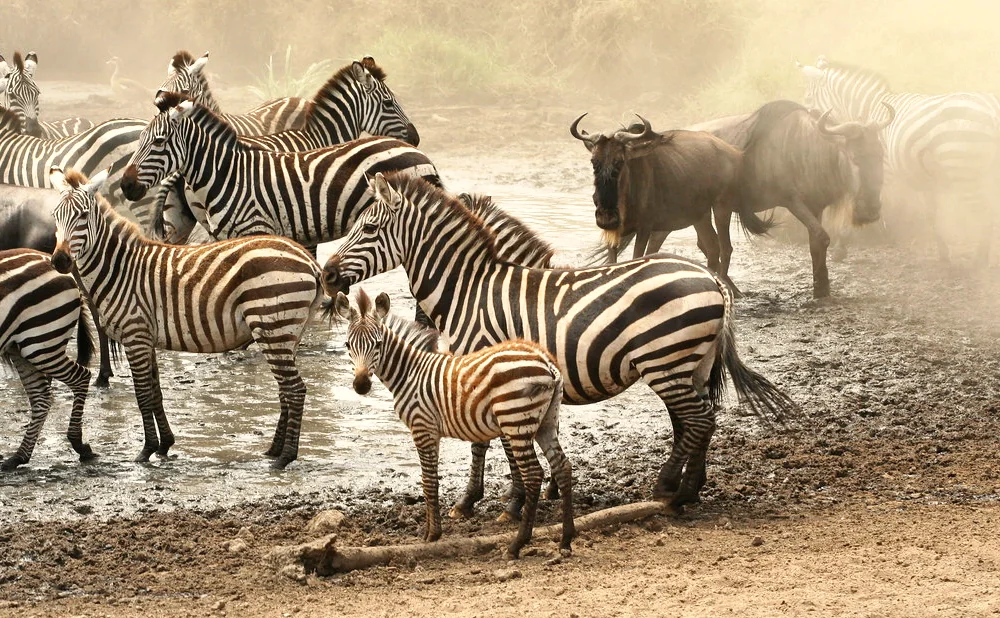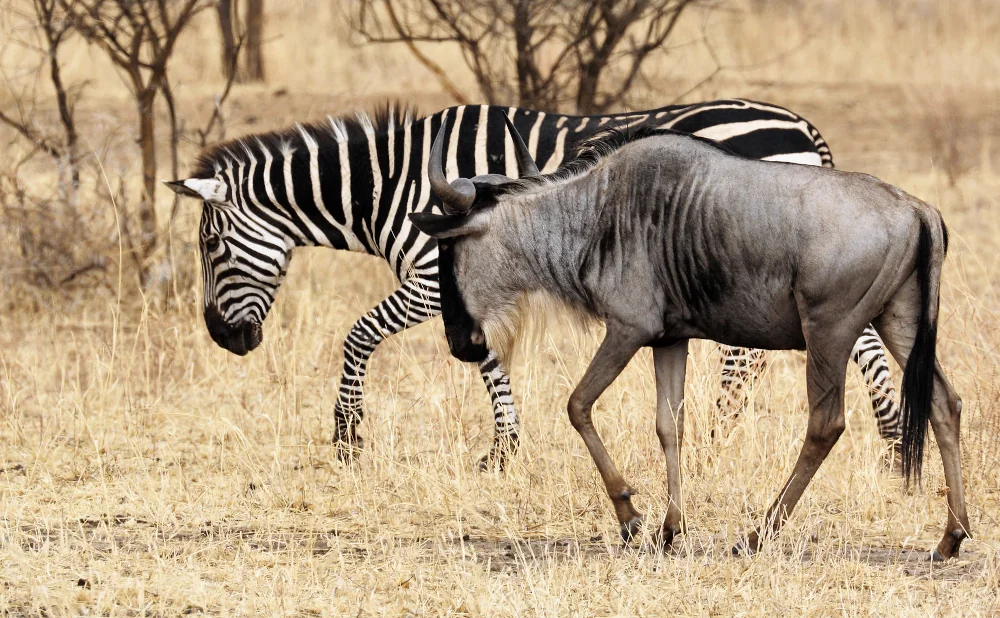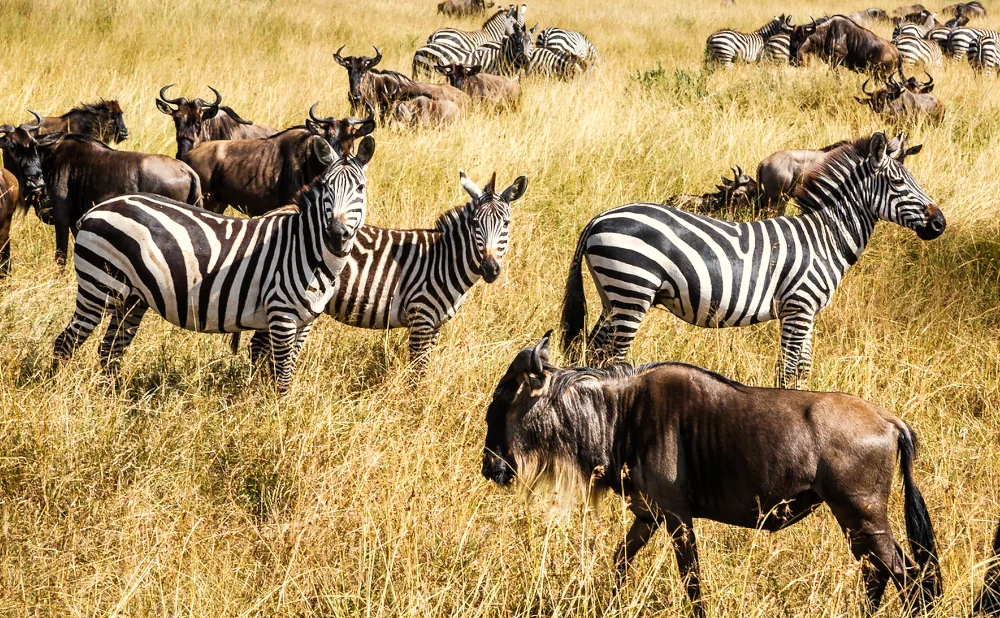self drive game reserve
A self-drive game reserve trip is an adventure like no other. It offers a unique blend of freedom, excitement, and close encounters with wildlife.
In the vast landscapes of Tanzania, these trips are particularly enchanting. Golden trips in Tanzania are renowned for their rich biodiversity and stunning scenery.
But what does a self-drive game reserve trip entail? It's about renting a car and exploring game reserves at your own pace. It's about the thrill of spotting wildlife in their natural habitat, without the constraints of a guided tour.
This guide aims to provide you with comprehensive information on planning such a trip. From selecting the right game reserve to renting a suitable car, we've got you covered.
We'll also share tips on how to make your self-drive safari safe and enjoyable. So buckle up and get ready for an unforgettable journey into the wild.
Why Choose a Self Drive Game Reserve Adventure?
Self-drive game reserves offer the ultimate freedom to explore at your own pace. You become the master of your itinerary, deciding where to go and when to stop. This independence allows you to linger longer at enchanting spots, creating an experience uniquely yours.
Another significant advantage is cost savings. Self-drive adventures are often more affordable than organized tours. You only pay for what you choose, avoiding extras like guide fees. Plus, the thrill of uncovering hidden locations can be deeply rewarding. Embrace the adventure and connect with nature in your own way.
Planning Your Self Drive Safari: Steps to Get Started
Embarking on a self-drive safari requires thorough planning. Start by researching your preferred game reserve destinations. Consider factors like location, wildlife diversity, and accessibility.
Budgeting is a crucial step. List anticipated expenses such as car rental, park entry fees, and accommodations. This ensures you have a clear financial plan in place.
Compile a list of essential gear. Make sure to include navigation tools, first-aid kits, and camping equipment if applicable. Preparation is key for a safe journey.
Check for any travel advisories or restrictions related to your chosen destination. Staying informed helps avoid unexpected surprises.
Finally, craft a rough itinerary. Balance flexibility with structure to maximize your experience. Key planning steps include:
Research game reserves
Budget carefully
Gather essential gear
Check travel advisories
Create an itinerary
Selecting the Right Game Reserve
Choosing the ideal game reserve sets the tone for your safari. Consider the type of wildlife you wish to see. Tanzania offers a variety of reserves, each with unique flora and fauna.
Think about the terrain you are comfortable navigating. Some reserves are more challenging, ideal for seasoned adventurers. Others provide easier tracks suitable for beginners and families.
Review visitor feedback and expert recommendations. Insights from previous travelers can guide you toward the best options. A well-researched choice enhances your safari experience.
Renting the Perfect Safari Vehicle
Selecting the right vehicle is vital for your safari's success. Assess the terrain of your chosen game reserve to determine the type of vehicle needed. A 4x4 is often ideal for rugged landscapes.
Consider rental companies with a strong reputation for quality and reliability. Checking reviews can save you from unexpected vehicle issues.
Review the rental contract thoroughly. Understand insurance coverage and any potential extra fees. Clarity on terms ensures a worry-free safari.
Necessary Documents and Entry Requirements
Prepare all necessary documentation well before your departure. Valid identification, such as a passport, is essential for car rentals and park entry.
Confirm if a visa is required for your destination. Applying in advance can prevent last-minute complications that delay your trip.
Ensure your driver’s license is accepted in the country you plan to visit. An international driving permit might be necessary. Being well-prepared keeps your adventure seamless.
Best Time to Visit Tanzanian Game Reserves
Timing your visit to Tanzanian game reserves can greatly enhance your safari experience. The dry season, from June to October, is highly recommended. During this time, animals gather around water sources, making wildlife viewing more rewarding.
The wet season, from November to May, offers a different charm. Lush landscapes and fewer tourists characterize this period. However, some roads may become challenging to navigate.
Ultimately, the choice depends on what you seek. For bustling wildlife and easy driving, the dry season is best. For vibrant scenery and tranquility, consider the wet months.
Self Drive Safari Tips for a Safe and Enjoyable Experience
Embarking on a self-drive safari promises adventure but requires careful preparation. Prioritize safety as you plan your trip. Equip yourself with essential knowledge and supplies to ensure a seamless experience.
Check your vehicle before entering the game reserve. Regular maintenance and pre-trip checks are vital. Carry spare tires, tools, and a first-aid kit.
Respect the park rules and guidelines. This protects both you and the wildlife. Keep a safe distance and follow all posted signs.
Stay mindful of your surroundings. Constant vigilance can prevent accidents and encounters with wildlife. Drive slowly and watch the road.
Here's a quick checklist for your self-drive safari:
Vehicle maintenance tools
First-aid supplies
Reliable GPS or maps
Ample water and snacks
Emergency contact information
By following these tips, your safari will be both enjoyable and secure.
Wildlife Viewing Etiquette
Understanding wildlife behavior is crucial. Observing from a distance ensures safety and minimizes disturbances. Avoid loud noises and quick movements that could startle animals.
Never feed wildlife, as it alters their natural habits. Keep windows closed when close to animals. Respect their space and keep a respectful distance at all times.
Cherish the experience by practicing patience. Enjoy watching animals in their natural habitat. Your quiet observation leads to more rewarding encounters.
Navigation and Communication
Navigating a game reserve requires preparation. Have both digital and physical maps ready. Reliable GPS helps navigate unfamiliar terrain.
Spotty mobile service in remote areas is common. Consider a satellite phone for emergency situations. Plan your route before setting out to avoid getting lost.
Keep informed about your surroundings. Check road conditions regularly. Staying updated helps you make informed decisions about your travel path.
Dealing with Emergencies
Prepare for unexpected situations. Carry an emergency contact list and familiarize yourself with park protocols. Knowledge of the area helps navigate emergencies efficiently.
Remain calm during emergencies. Assess the situation and contact park authorities if needed. A composed mind leads to better problem-solving.
Practice proactive safety measures. Regularly check your fuel levels and tire pressure. Anticipating challenges helps avoid panic during emergencies.
Accommodation and Packing Essentials for Your Self Drive Tour
Choosing the right accommodation is essential for an enjoyable self-drive safari. Consider lodges, campsites, or eco-resorts close to game reserves. Each offers unique experiences, from luxury to rustic authenticity.
Pack strategically for your tour. Essential items ensure comfort and readiness for unexpected situations. Adapt your packing list to the reserve’s climate and terrain.
Include the following essentials:
Lightweight, breathable clothing
Sturdy hiking boots
Binoculars for wildlife spotting
Reusable water bottles
Insect repellent and sunscreen
A power bank for electronic devices
Your comfort and safety on a self-drive safari depend on solid preparation. Pack thoughtfully to maximize the enjoyment of your adventure.
Budgeting and Cost-Saving Tips for Your Self Drive Game Reserve Trip
Budgeting is crucial for making the most of your self-drive safari. Prioritize expenses like park fees, accommodation, and vehicle rental. Allocate funds efficiently to avoid last-minute surprises.
Book early to take advantage of discounts. Early birds often find better rates for lodging and rental cars. Consider traveling during off-peak seasons for further savings.
Pack your own food and drinks to save on dining costs. This not only cuts expenses but ensures you have your favorite snacks on hand. A well-planned budget enhances your safari experience, making it both enjoyable and affordable.
Embracing the Adventure: Stories from Self Drive Safari Goers
Imagine the thrill of an unexpected elephant crossing while driving along a dusty trail. Many self-drive enthusiasts share tales of such riveting moments. These experiences create lasting memories and stories to tell.
Several travelers have recounted serene picnics under acacia trees, surrounded by the sights and sounds of wildlife. Their journeys highlight the joy of setting one's own pace. These personal encounters make self-drive safaris unique and special.
The freedom to explore at will often leads to magical discoveries. Hidden waterholes frequented by lions or a family of giraffes grazing nearby. These stories illuminate the extraordinary adventures that await in self-drive game reserves.
The Rewards of a Self-Guided Safari
Self-guided safaris offer unmatched flexibility and a deeper connection with nature. By planning and leading your own journey, you gain a sense of accomplishment and freedom. This adventure fosters personal growth and unforgettable experiences.
Immerse yourself in the wild, witness breathtaking landscapes, and embrace the thrill of discovery. A self-drive safari rewards with unique sights and cherished memories. It’s a journey that resonates long after it ends.











